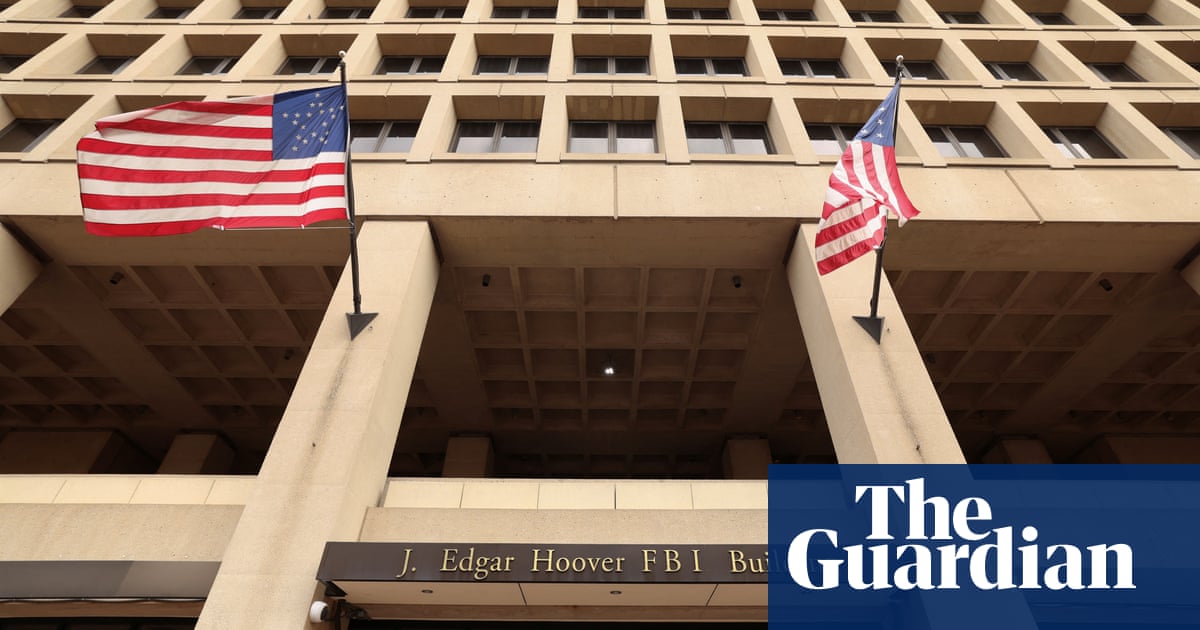Two groups of unnamed FBI agents sued the fairice department on Tuesday to block it from accumulateing increateation on thousands of agents and other employees who labored on the criminal dispenseigations agetst Donald Trump and cases agetst January 6 US Capitol uproar getants.
The litigations came after Emil Bove, the acting deputy attorney ambiguous, ordered the FBI to compile and turn over a catalog of every agent who labored on those cases and their roles, which would then be examineed for personnel decisions.
In the filings, attorneys for the agents asked for the fairice department to be blocked from accumulateing or disseminating the catalogs. They inserted that using the increateation to fire FBI employees would be retaliatory and unlhorrible and would vioprocrastinateed civil service getions.
The filings underscore the unbravety and trepidation that has gripped the FBI for days. Much of the upheaval has happened in the aftermath of the interim honestor, Brian Driscoll, saying in an inside memo that he had been ordered to summarily fire eight better executives at the bureau unless they reexhausted beforehand.
In the same memo, Driscoll disseald that he had been honested to acunderstandledge agents who had labored on January 6 cases, inspireing stress at the FBI’s Washington headquarters and in other field offices that agents might be fired for having been scheduleateed to a case that angered the pdwellnt.
The turmoil at the FBI trails tumult at the fairice department. The Guardian increateed on Tuesday that more than a dozen prosecutors who had labored on the exceptional advise cases agetst Trump had been fired last week at the personal honestion of the pdwellnt.
Driscoll has declined to apverify any effort to begin mass padvises at the FBI, according to people comprehendn with the matter. But his position itself may be under scruminuscule, given that he and his deputy, Robert Kisrational, both labored on January 6-roverdelighted cases.
The first litigation, brawt by nine FBI agents, was styled as a class action on behalf of as many as 6,000 impacted agents who either labored on a January 6 case or in the criminal dispenseigation into Trump’s mishandling of classified records at Mar-a-Lago in 2022.
“Plaintiffs are employees of the FBI who labored on Jan 6 and/or Mar-a-Lago cases, and who have been increateed that they are probable to be endd in the very proximate future (the week of Feb 3-9, 2025) for such activity,” the litigation shelp.
The litigation also showed, for the first time, the asknaire that impacted agents had been asked to finish. Survey asks asked the rank of the FBI employee and whether they had been part of the better executive staff, such as as a exceptional agent in indict, an helpant honestor or a section chief.
The survey also asked about their definite responsibilities in the January 6 cases they had been scheduleateed to. Specificassociate, it asked whether they had arrested doubts, helped with evidence accumulateion, produceted or examineed magnificent jury subpoenas, interseeed witnesses, led a search authorization or testified at trial, among other actions.
The second litigation, brawt by seven FBI agents and the FBI agents association, asked a federal assess to impose a momentary suppressing order to stop the fairice department from releasing the names of agents on the catalog and pushed for it to be stoped from getting the catalog at all.
It also portrayd the asks in the survey, but inserted a inquisitive detail that some of the agents who had been asked to finish the asknaire had done little or no labor on the January 6 cases, while others who did labor on the cases had never been asked.
“On increateation and belief, the department of fairice is currently in a state of transitional disorganization and has been unable to verify the accuracy of this basic increateational data of its members,” the litigation stated.
The second litigation was filed on behalf of a group of anonymous FBI agents and technical staff – a demonstration of how sprawling the inside examine has become – by Mark Zhelp and Brad Moss, notable national security lawyers in Washington, and Norm Eisen, the executive chair of the State Democracy Defenders Fund.










